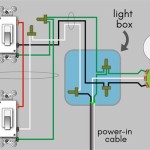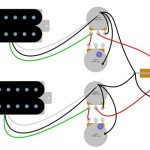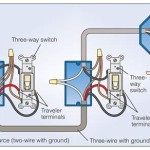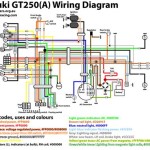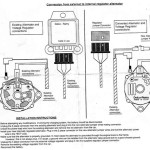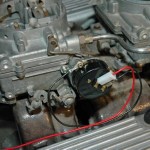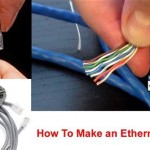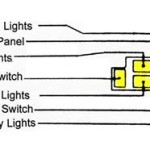Car wiring repair involves identifying and fixing any faults or damage in the electrical wiring system of a vehicle. For example, malfunctioning headlights can indicate a problem in the wiring circuit that needs to be diagnosed and repaired.
Maintaining a functional wiring system is crucial for vehicle safety and performance. It ensures proper functioning of electrical components, prevents electrical hazards, enhances fuel efficiency, and extends the lifespan of the vehicle. A significant development was the introduction of computerized diagnostic tools, making it easier and more accurate to locate and repair wiring issues.
This article delves into the complexities of car wiring repair, exploring techniques for troubleshooting electrical problems, common types of wiring issues, and advanced repair methods used by professionals.
Understanding the essential aspects of car wiring repair is crucial for ensuring vehicle safety, performance, and longevity. These aspects encompass various dimensions related to the electrical wiring system of a car.
- Diagnosis: Identifying electrical faults accurately.
- Troubleshooting: Tracing the root cause of electrical problems.
- Repair: Restoring electrical circuits to proper functionality.
- Maintenance: Preventing electrical issues through regular inspections.
- Safety: Ensuring electrical systems operate without posing hazards.
- Performance: Optimizing electrical systems for efficient vehicle operation.
- Technology: Utilizing advanced tools and techniques for repair.
- Expertise: Acquiring specialized knowledge and skills for effective repair.
These aspects are interconnected and essential for comprehensive car wiring repair. Accurate diagnosis enables effective troubleshooting, leading to precise repairs. Regular maintenance helps prevent failures, ensuring safety and optimal performance. Technological advancements enhance repair efficiency and accuracy, while expertise ensures reliable and long-lasting solutions.
Diagnosis: Identifying electrical faults accurately.
In the realm of car wiring repair, accurate fault diagnosis stands as a cornerstone. It’s the art of pinpointing the root cause of electrical maladies, enabling targeted repairs and preventing recurring issues. This intricate process encompasses various facets:
- Visual Inspection: A meticulous examination of wiring harnesses, connectors, and components, seeking signs of damage, corrosion, or loose connections.
- Electrical Testing: Employing multimeters, voltage testers, and other diagnostic tools to measure voltage, resistance, and current flow, identifying deviations from normal parameters.
- Circuit Tracing: Using wiring diagrams and continuity testers to trace electrical circuits, verifying the integrity of individual wires and identifying open or short circuits.
- Component Testing: Evaluating individual electrical components, such as switches, relays, and sensors, to assess their functionality and identify any faulty units.
Accurate diagnosis not only streamlines the repair process but also ensures lasting solutions. By precisely identifying the source of the problem, technicians can implement targeted repairs, minimizing unnecessary component replacements and preventing future failures. Furthermore, it enables preventive maintenance, allowing potential issues to be addressed before they manifest as major breakdowns.
Troubleshooting: Tracing the root cause of electrical problems.
In the realm of car wiring repair, troubleshooting stands as a critical component, a methodical approach to identifying the underlying cause of electrical malfunctions. It’s the art of tracing the intricate network of wires, connectors, and components, seeking the source of the disruption.
Troubleshooting plays a pivotal role in effective car wiring repair. By pinpointing the root cause of the problem, technicians can implement precise repairs, avoiding unnecessary part replacements and ensuring long-term solutions. Moreover, it enables preventive maintenance, allowing potential issues to be addressed before escalating into major breakdowns.
Real-life examples abound, showcasing the significance of troubleshooting in car wiring repair. A flickering headlight, for instance, may stem from a faulty wire connection or a malfunctioning switch. By tracing the electrical circuit and testing individual components, the technician can identify the root cause and implement a targeted repair, restoring proper illumination.
The practical applications of troubleshooting extend beyond resolving immediate issues. It empowers technicians with a deep understanding of car wiring systems, enabling them to anticipate potential problems and proactively address them. This comprehensive approach enhances vehicle safety, reliability, and performance, ensuring a smooth and trouble-free driving experience.
Repair: Restoring electrical circuits to proper functionality.
In the intricate world of car wiring repair, the “Repair” aspect holds a pivotal position, representing the practical measures undertaken to restore electrical circuits to optimal functionality. It encompasses a wide range of activities, from identifying faulty components to implementing targeted repairs.
- Component Replacement: Defective components, such as relays, switches, or sensors, may need to be replaced to restore circuit functionality. Technicians rely on specialized knowledge and diagnostic tools to accurately identify and replace faulty components.
- Wire Repair: Damaged wires, whether due to wear, corrosion, or accidental cuts, can disrupt circuit continuity. Repair involves carefully splicing or replacing damaged sections of wire, ensuring proper electrical flow.
- Connector Repair: Loose or corroded connectors can impede electrical connections. Technicians clean, repair, or replace connectors to restore proper contact and prevent intermittent electrical issues.
- Circuit Modification: In certain cases, modifications to the electrical circuit may be necessary to address specific issues or enhance functionality. This requires a thorough understanding of electrical principles and the vehicle’s wiring system.
Effective repair not only resolves immediate electrical problems but also contributes to the overall reliability and safety of the vehicle. By restoring proper circuit functionality, technicians ensure that electrical components operate as intended, preventing potential hazards and ensuring a smooth driving experience.
Maintenance: Preventing electrical issues through regular inspections.
In the context of car wiring repair, maintenance plays a crucial role in preventing electrical issues before they manifest into costly repairs or safety hazards. Regular inspections allow for the early detection of potential problems, enabling timely intervention to address minor issues before they escalate into major ones. These inspections cover various aspects of the vehicle’s electrical system.
- Battery Inspection: Regular battery inspections involve checking for corrosion, loose connections, and fluid levels. Early detection of battery issues can prevent sudden breakdowns and ensure reliable starting.
- Wiring Harness Inspection: Wiring harnesses, bundles of wires that connect various electrical components, should be inspected for damage, fraying, or loose connections. Proactive identification of wiring issues helps prevent short circuits and electrical fires.
- Fuse Box Inspection: Fuse boxes protect electrical circuits from overloads. Inspecting fuse boxes for blown fuses and loose connections allows for prompt replacement, preventing damage to sensitive electrical components.
- Lighting System Inspection: Regularly checking headlights, taillights, brake lights, and turn signals ensures optimal visibility and communication with other drivers. Early detection of lighting issues prevents accidents and improves nighttime driving safety.
Regular inspections form the cornerstone of effective car wiring maintenance. By addressing potential issues early on, mechanics can extend the lifespan of electrical components, prevent costly repairs, and enhance overall vehicle safety and reliability.
Safety: Ensuring electrical systems operate without posing hazards.
In the realm of car wiring repair, safety stands as a paramount concern, demanding meticulous attention to detail and adherence to best practices. Electrical systems, when operating flawlessly, play a vital role in ensuring the safety and well-being of vehicle occupants and others on the road. However, when electrical faults or malfunctions occur, they have the potential to pose significant hazards, ranging from minor inconveniences to catastrophic events.
A prime example of the safety implications associated with car wiring repair involves the electrical wiring harness, a complex network of wires that connects various electrical components throughout the vehicle. A compromised wiring harness, whether due to wear, corrosion, or improper installation, can lead to a wide range of electrical issues, including short circuits, power surges, and even electrical fires. These hazards can not only damage sensitive electronic components but also pose a direct threat to the safety of occupants.
To mitigate these risks, skilled car wiring repair technicians undergo rigorous training to develop a comprehensive understanding of electrical systems and wiring harnesses. They employ specialized diagnostic tools and techniques to pinpoint the exact location and nature of electrical faults, ensuring that repairs are precise and effective. Furthermore, they adhere to strict safety protocols throughout the repair process, minimizing the risk of electrical shocks or fires.
By prioritizing safety in car wiring repair, technicians play a critical role in maintaining the integrity of electrical systems, preventing potential hazards, and ensuring the continued safe operation of vehicles.
Performance: Optimizing electrical systems for efficient vehicle operation.
In the realm of car wiring repair, the pursuit of optimal electrical system performance stands as a critical component, directly influencing the efficiency, reliability, and overall driving experience. A well-maintained and efficiently functioning electrical system is essential for maximizing vehicle performance, ensuring that all electrical components operate seamlessly, without compromising power or functionality.
The connection between electrical system performance and car wiring repair is evident in numerous real-life examples. Consider a scenario where a vehicle’s electrical wiring harness, a complex network of wires connecting various electrical components, experiences damage or deterioration. This damage can lead to increased electrical resistance, voltage drops, and potential power loss. As a result, critical electrical components, such as the fuel injection system or ignition system, may not receive the necessary power to function optimally, leading to reduced engine performance, increased fuel consumption, and potential stalling.
The practical applications of understanding the relationship between electrical system performance and car wiring repair are vast. Skilled car wiring repair technicians possess a deep understanding of electrical systems and their impact on overall vehicle performance. They employ advanced diagnostic tools and techniques to identify and resolve electrical issues, ensuring that all electrical components receive the appropriate power and signals to function efficiently. By maintaining optimal electrical system performance, technicians contribute to improved fuel efficiency, enhanced engine power, and overall driving smoothness.
In summary, optimizing electrical systems for efficient vehicle operation is an integral aspect of car wiring repair. Electrical system performance directly affects the reliability, efficiency, and driving experience of a vehicle. Skilled car wiring repair technicians play a vital role in maintaining optimal electrical system performance, utilizing their expertise and specialized tools to diagnose and resolve electrical issues, ensuring that vehicles operate at their peak efficiency and performance.
Technology: Utilizing advanced tools and techniques for repair.
In the realm of car wiring repair, technological advancements play a pivotal role in enhancing the precision, efficiency, and effectiveness of repair processes. Advanced tools and techniques empower technicians with the ability to diagnose electrical faults accurately, perform repairs with greater precision, and ensure the optimal functioning of vehicle electrical systems.
- Diagnostic Tools: Modern diagnostic tools, such as scan tools and oscilloscopes, provide comprehensive insights into the electrical system’s behavior. These tools enable technicians to pinpoint the exact location and nature of electrical faults, reducing diagnostic time and ensuring targeted repairs.
- Specialized Equipment: Specialized equipment, such as wire strippers, crimpers, and heat guns, allows technicians to work with electrical wires and connectors with precision and efficiency. These tools ensure proper wire connections, reducing the risk of short circuits and other electrical hazards.
- Repair Techniques: Advanced repair techniques, such as soldering and heat shrink tubing, enable technicians to restore damaged wires and connectors to their original condition. These techniques ensure reliable electrical connections and prevent future issues.
- Training and Expertise: Access to ongoing training and specialized knowledge is essential for technicians to stay abreast of the latest technological advancements and best practices in car wiring repair. This ensures that technicians possess the skills and expertise to diagnose and repair electrical issues effectively.
By embracing technological advancements, car wiring repair technicians can elevate the quality and efficiency of their work, ensuring the reliable and safe operation of vehicles. These advanced tools and techniques empower technicians to diagnose and resolve complex electrical issues with greater precision, minimize repair time, and enhance the overall performance and longevity of vehicle electrical systems.
Expertise: Acquiring specialized knowledge and skills for effective repair.
In the realm of car wiring repair, expertise stands as a cornerstone, encompassing the specialized knowledge and skills required to effectively diagnose and resolve electrical issues. This expertise empowers technicians to navigate the complexities of vehicle electrical systems, ensuring the safe and reliable operation of vehicles.
-
Diagnostic Proficiency:
Expert car wiring repair technicians possess a comprehensive understanding of electrical system diagnostics. They can accurately pinpoint the source of electrical faults using advanced tools and techniques, ensuring precise repairs that address the root cause of the issue.
-
Practical Experience:
Hands-on experience is essential for developing the practical skills required in car wiring repair. Technicians gain valuable knowledge by working on real-life electrical issues, honing their ability to identify and resolve problems efficiently.
-
Component-Level Expertise:
Expert technicians have a deep understanding of the function and behavior of individual electrical components. This enables them to accurately identify faulty components and perform precise repairs, ensuring the optimal functioning of the electrical system.
-
Electrical Theory and Principles:
A solid foundation in electrical theory and principles is crucial for car wiring repair experts. This knowledge enables them to analyze electrical circuits, identify potential issues, and develop effective repair strategies.
Expertise in car wiring repair extends beyond technical proficiency. It encompasses a commitment to ongoing learning, keeping abreast of technological advancements and best practices. This dedication to professional development ensures that technicians possess the knowledge and skills to effectively diagnose and resolve even the most complex electrical issues, ensuring the safety and reliability of vehicles.









Related Posts

